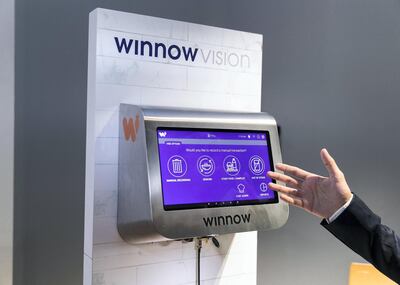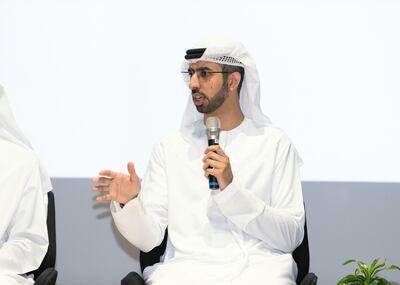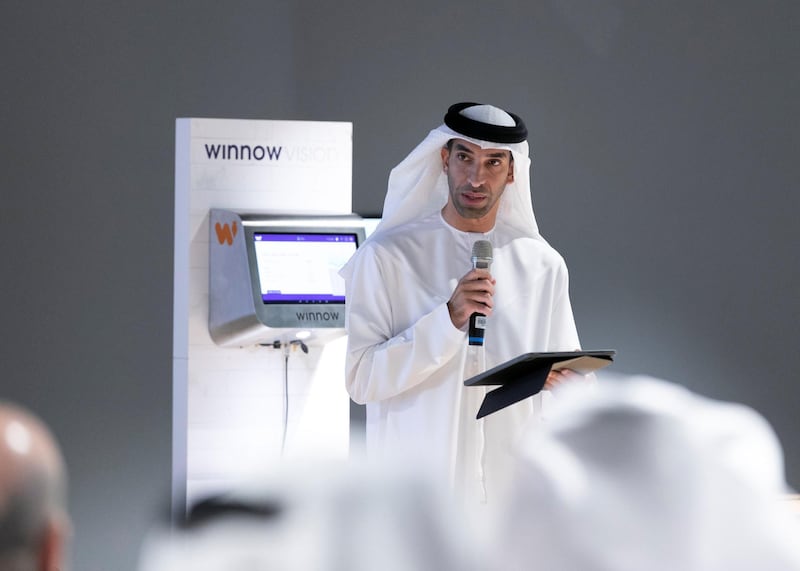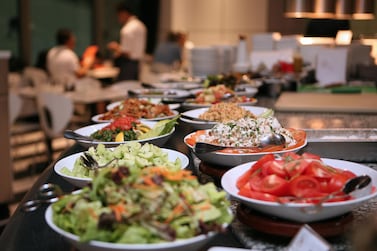A UAE minister has issued a rallying cry to the country's hospitality industry to back a government drive to tackle food waste.
Dr Thani Al Zeyoudi, Minister of Climate Change and Environment, urged the sector to throw its support behind a pledge to save three million meals a year from the rubbish bin by 2020.
It is estimated that the UAE discards Dh13 billion of food each year, with an average person said to be responsible for 2.7 kg of waste per day, between food and packaging.
The Emirates' lavish brunch culture - in which mountains of food often go uneaten each week - has been cited as a key part of the problem.
Now hoteliers are being told to turn to technology to keep track of their food waste and address an issue of national concern.
“As a government we have to continually work towards reducing food waste,” said Dr Al Zeyoudi.
“The hospitality sector is one of the sectors that has the biggest impact on waste in the UAE.”
Dr Al Zeyoudi said a number of leading organisations had already signed up to the pledge, including Dubai Municipality, Etihad Airways, Hilton Hotels and Resorts, Jumeirah Emirates Towers Hotel and JA Resorts and Hotels.
By making the promise, he said, the country was cementing its commitment to meet the United Nations target of cutting food losses and waste by 50 per cent by the year 2030.
“To ensure that we can achieve the transformative change, I invite the entire hospitality sector in the UAE to join our pledge and commit to reducing food waste in its operations now,” he said.
The campaign was first introduced last year with the target of saving one million meals in the first 12 months. In 2019, that figure increased to two million and the final year of the project has a target to reach of three million meals.
Each individual meal was estimated to have a weight value of 400g.
To reach that figure, the Ministry encouraged the hospitality sector to adopt an artificial intelligence programme, known as the Winnow Vision system, that measures the amount of food that is discarded and puts a monetary value on it.
A camera and a scale are used to identify the food item thrown away and its weight.

“As you throw food away the system will take a picture of the product and will identify it and we are able to know the cost of it based on that information,” said Marc Zornes, Winnow's chief executive.
“I would argue there is an urgent need for the Winnow system all over the hospitality sector but especially so in the UAE.
“That’s because the country is seen as a leader in hospitality, many of the hotels here are globally renowned for their offerings.”
The Winnow system has already been adopted by a number of hotels in the region, according to Mr Zornes.
“Hilton JBR in Dubai, for example, is saving $65,000 a year using Winnow,” he said.
“We know that because they were throwing away a certain amount when we started working with them, they were able to cut their food waste by 50 per cent and we know how much they are saving every single day.”

Also taking part in the panel discussion was Omar Al Olama, Minister of State for Artificial Intelligence.
“Curbing food waste is an area where AI can be a useful tool and bring in tremendous benefits to sustain the sector for current and future generations,” he said.
“The UAE strives to leverage AI technologies to meet the UN’s Sustainable Development Goals and improve its performance.”








